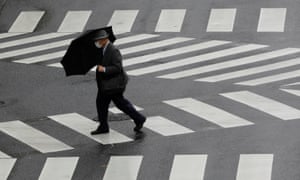
Rents have continued to climb across England, but they are sliding in London as Airbnb owners abandon hopes of attracting holidaymakers and put their properties on the long-term rental market.
Property website Rightmove said asking rents outside London hit a record of £845 a month in early July, up 3.4% on the same time last year.
But in the capital, rents fell by 0.6% over the year, with stock levels up 41%. It said the rise in flats and houses available for rent was “fuelled by landlords with holiday lets now competing for long-term rentals”.
These are strange times for this year’s cohort of UK A-level students. Schools and colleges closed in March; exams were cancelled. Sectors young people would normally seek casual employment in, such as retail or hospitality, have been shedding staff at an alarming rate.
Many universities, including Cambridge, are moving to online tuition. Apprenticeship opportunities have largely evaporated. For school leavers, this is a crucial time: deciding whether to travel, work or go to university. The pace of change at the age of 17 or 18 is the equivalent to years as an adult. But now, with plans shattered, these young people are facing a year in limbo.
More than three-quarters of the world’s richest people have reported an increase in their already vast family fortunes, despite the economic shock caused by the coronavirus pandemic.
Research into the family offices of the super-rich found that the vast majority were able to “ride out 2020’s storm in financial markets”, while many less wealthy people have lost their jobs and seen the value of their savings and pensions collapse.
The report by the Swiss bank UBS found that 77% of the richest families – who had average fortunes of $1.6bn (£1.25bn) – had seen their investment portfolios “perform in line with, or above, targets during one of the most volatile moments in the history of financial markets”.
Angela Merkel set for central role in talks on EU recovery plan
A year ago Angela Merkel was seen as tired and drifting, having announced her intention to stand down as chancellor in 2021 after disastrous election results. Now credited for her calm leadership during the coronavirus pandemic, with personal approval ratings close to 80%, she is once again seen as the indispensable broker as EU leaders seek a recovery plan.
“Merkel was strengthened by coronavirus and by not being challenged inside her party,” said a senior EU diplomat. “I think that she is ready [to get a deal], she understands every small thing about the proposals.”
When EU leaders sit down together on Friday and Saturday, it will be their first face-to-face meeting since the pandemic struck. On the table is a €750bn (£680bn) draft recovery plan, as well as a proposed €1.074tn EU budget for the next seven years. Getting a deal on the budget will be fiendishly difficult as the EU attempts to square the circle of more spending on the environment, security and health and the €75bn shortfall caused by Brexit.
Tokyo expected to report record cases for the city
Tokyo is likely to see coronavirus cases exceed 280 on Thursday – a daily record for the Japanese capital – according to the governor, Yuriko Koike. “It’s still incomplete, but I’m hearing that the number will be above 280,” Koike told reporters.
She noted that the city, home to almost 14 million people, was due to conduct more than 4,000 tests on Thursday, as the city steps up testing amid a surge in cases since the nationwide state of emergency was lifted in late May.

Officials have traced several clusters to nighttime entertainment districts, with testing now focusing on employees and customers at host and hostess clubs, where social distancing is difficult.
There was anger this week after reports that 37 cases had been traced to a theatre that hosted a stage production by boy bands, whose members later greeted fans. Some reports said the theatre had not properly followed industry rules on social distancing and mask wearing. More than 850 people who attended the event over six days have been urged to get tested.
Clusters have also been identified at nurseries and welfare facilities.
California reports record 11,000 daily cases
California recorded its largest number of coronavirus infections in a single day on Tuesday, amid efforts to halt reopening statewide.
The state tallied 11,126 cases, the highest number since the pandemic began. The number of positive cases has increased 3.3% in the past seven days and 47.2% in the past 14 days, according to state data.
With testing throughout the state more readily available, an uptick in cases would be expected, but the positivity rate among test results has increased steadily to 7.3% over the last seven days. Hospitalizations have also hit a record high, according to state data.
In total, the state has reported 347,634 cases since the pandemic started and seen 7,227 deaths. In the past 24 hours, there have been 140 new coronavirus-related deaths.







